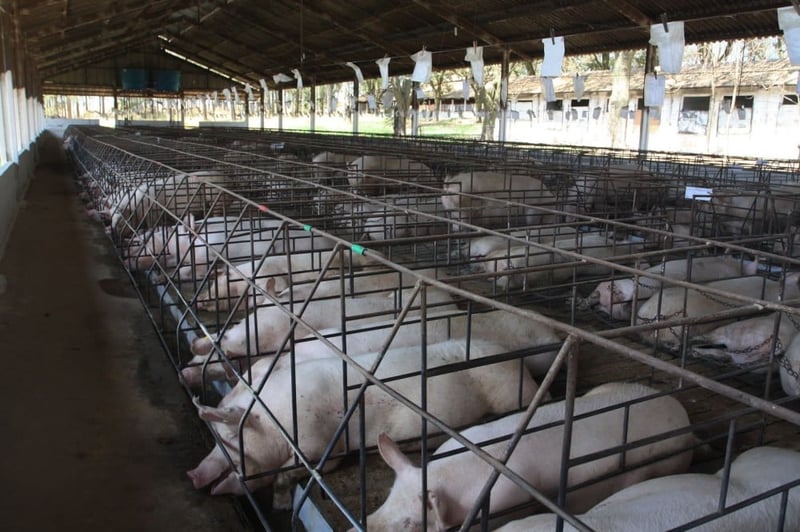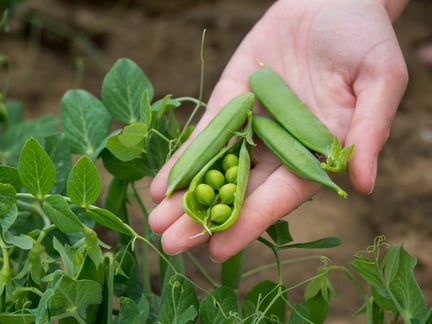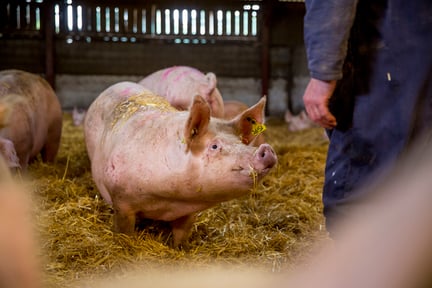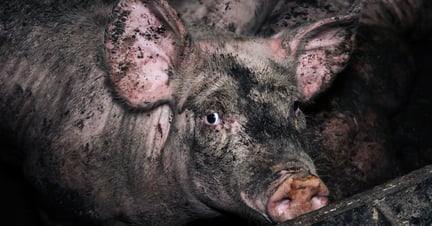
World Animal Protection Welcomes the Belém Health Action Plan and Calls for Stronger One Health Action
News
World Animal Protection responds to the Belém Health Action Plan at COP30, urging stronger One Health action to address factory farming, wildlife trade and climate-driven health risks.
World Animal Protection welcomes the release of the Belém Health Action Plan (BHAP) for Climate Adaptation in the Health Sector - a key outcome at COP30 that highlights the urgent need for a holistic One Health approach to safeguard public health in a rapidly changing climate.
The BHAP recognises that adaptation efforts must go beyond emergency response and prioritise prevention, addressing the interconnected health risks faced by animals, people and ecosystems.
Kelly Dent, Director of External Engagement at World Animal Protection, said:
"We need to focus on the root causes of our health crises, including factory farming and the global wildlife trade.
The BHAP acknowledges the importance of prevention, not just management and response — this is an important part of One Health. We can’t continue to keep wild and farmed animals in confinement, where disease thrives and can easily spread from animals to humans.
“Exploiting wildlife and factory farming wild animals is pushing us to the brink, and this Action Plan reflects that.
Climate action cannot just be about humans, because when ecosystems and animals are neglected, the outcomes for people are diminished. By ensuring animal welfare is embedded in the rollout of the BHAP, we strengthen the resilience of our shared planet.
“Civil society have an important seat at the table in the BHAP, sending a message that the voices of our wildlife and farmed animals are essential to our planet’s survival. “The release of the BHAP today fuels us to work with Governments, the World Health Organization and civil-society organisations to make One Health a reality.”
The intensive farming systems mentioned by Dent create environments where diseases can easily emerge and mutate, posing hidden health impacts on a global scale. This is constantly evidenced by the emergence of new pathogen strains, such as the recent H5N9 Avian Influenza outbreak, a stark reminder of the risk posed by keeping animals in cruel and overcrowded conditions.
Similarly, the commercial exploitation of wild animals through practices like wildlife farming, where animals are bred for profit, creates unnatural points of contact between species. A true One Health approach, as called for by the BHAP, must explicitly address and dismantle these high-risk industrial systems.
Why One Health Matters at COP30
Climate change, biodiversity loss, factory farming and the wildlife trade are accelerating global health threats — from emerging diseases to respiratory crises and food system instability. A One Health approach recognises that protecting human health is impossible without protecting the welfare and habitats of animals and the biodiversity and ecosystems we all depend on.
The BHAP serves as a powerful regional commitment, reinforcing the need for global agreements that tackle these challenges head-on. Just recently, a major step forward was achieved with the approval of a Pandemic Agreement at the World Health Assembly, which recognizes the critical role of animal-human-environment interfaces. World Animal Protection is committed to ensuring that this and future global policy tools include strong provisions for animal welfare as a core strategy for pandemic prevention.
World Animal Protection continues to advocate for climate action that addresses the drivers of zoonotic risk and prioritises high animal welfare as a core component of resilient, humane and sustainable systems.
Stay updated on COP30
Join our community, support our mission, and follow us on LinkedIn to stay up to date with our work at COP30 and our global push for One Health solutions.
Related content
COP30 Protest Targets Big Ag Greenwashing at AgriZone
News
Activists confront industrial agriculture at COP30 AgriZone, highlighting climate, deforestation, and food justice concerns.
Financing the Protein Shift: Why Responsible Investment Matters
News
At COP30, World Animal Protection joined partners to launch the Protein Shift Standard — a roadmap for financing humane, sustainable food systems that protect animals, people and the planet.
Conference of the Parties (COP) Guide
Learn about the Conference of the Parties (COP) and how World Animal Protection advocates for animals in global climate and biodiversity discussions. Take action today!
Climate news
-
Delay to EU-Mercosur deal creates space for animal welfare...
News
European Parliament delays Mercosur deal with court referral, offering advocacy space for animal welfare, One Health and deforestation...
-
Factory Farming: The True Cost of Our Reliance on...
Press release
First-of-its-kind research exposes true global scale of factory farming and its detrimental effects on farmed animals, human health,...
-
COP30 lets Big Ag evade scrutiny, failing animals and...
Press release
World Animal Protection urges a global move from industrial animal farming as COP30 concludes in Belém, calling for...
-
COP30 Falls Short for Animals and the Amazon as...
News
COP30 closed with limited progress on forests, food systems, or animal welfare. World Animal Protection warns that Big...






